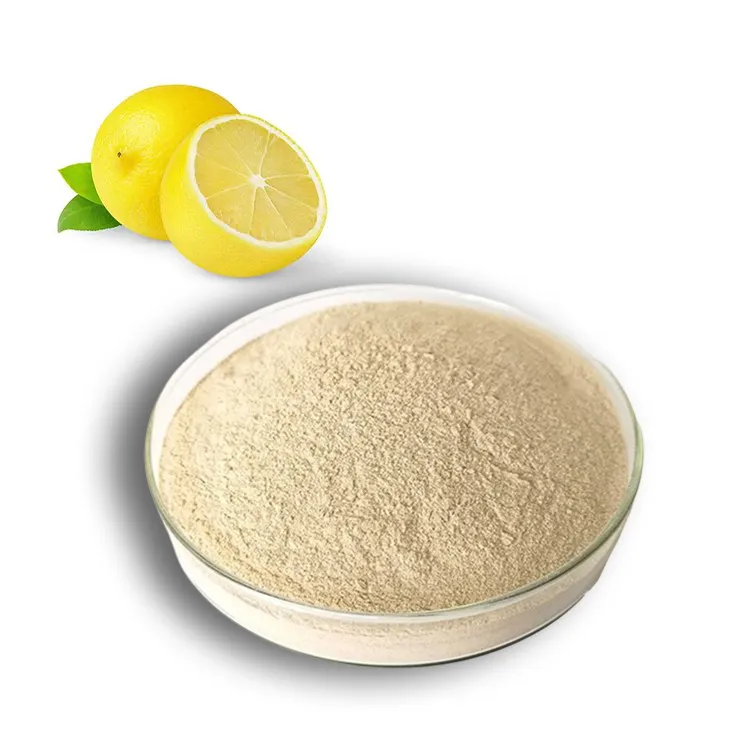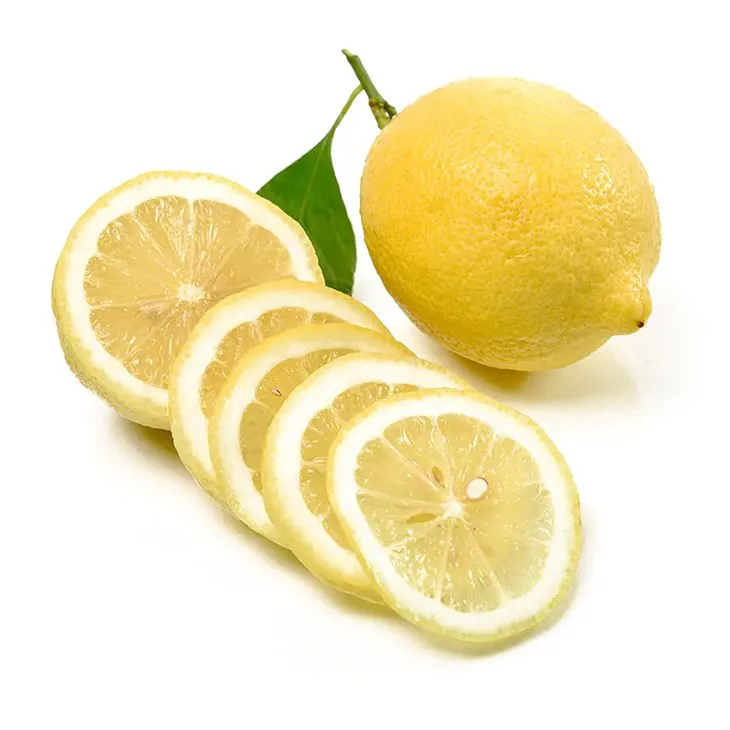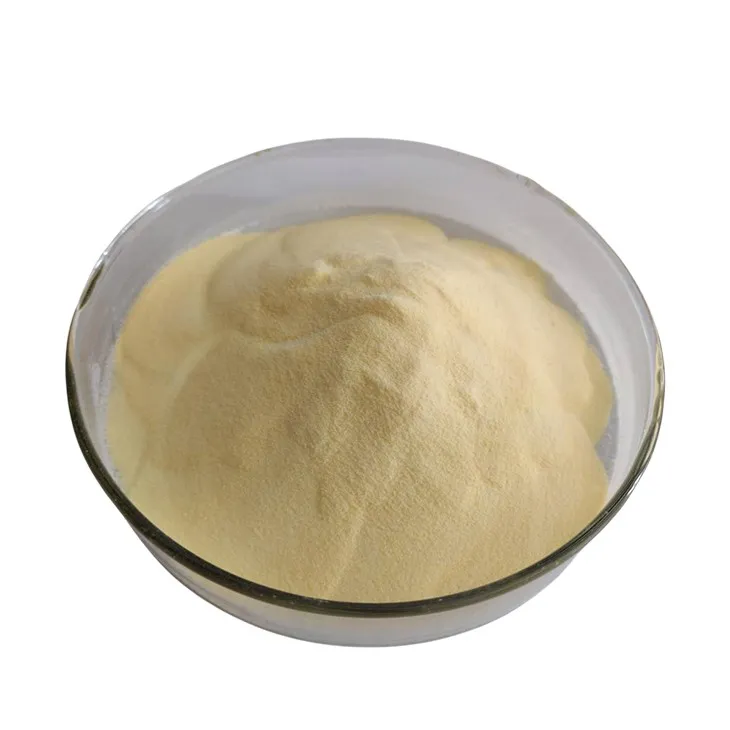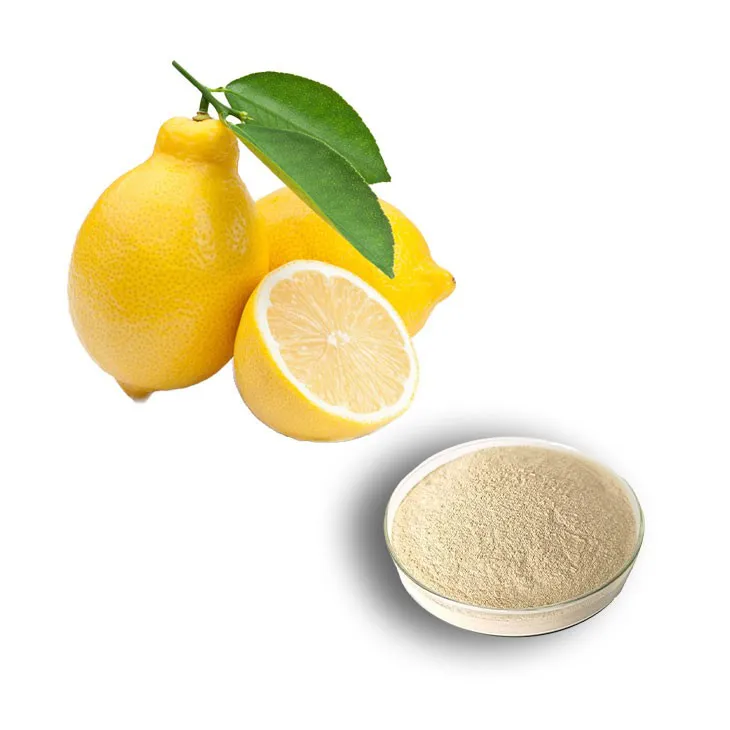- 0086-571-85302990
- sales@greenskybio.com
The extraction process of lemon extract.
2024-11-28

1. Introduction
Lemon Extract is a valuable substance that has found extensive applications in diverse sectors, including food, cosmetics, and medicine. Its unique flavor, aroma, and various beneficial properties make it a highly sought - after ingredient. Understanding the extraction process is crucial for obtaining high - quality Lemon Extract. This article will delve into the detailed steps involved in the extraction process.

2. Selection of Raw Materials
2.1 Quality Criteria
The first step in the extraction of Lemon Extract is the careful selection of fresh lemons as the raw material. When choosing lemons, several quality criteria need to be considered. Size, ripeness, and overall appearance play important roles. Ideally, the lemons should be of a suitable size, neither too small nor overly large. Ripeness is crucial as it affects the flavor and the content of active substances. Lemons that are too unripe may lack the characteristic flavor and may have lower levels of the desired compounds, while overripe lemons may have started to decay or have altered chemical compositions.2.2 Source Considerations
The source of the lemons also matters. Lemons from different regions may vary in quality due to differences in soil, climate, and cultivation methods. For example, lemons grown in regions with rich soil and optimal sunlight exposure tend to have better flavor and higher nutrient content. Organic lemons are also preferred in some applications, especially in the production of extracts for use in natural and organic products in the food and cosmetics industries.
3. Washing of Lemons
Once the lemons are selected, they need to be washed thoroughly. Washing is a crucial step to remove dirt, debris, and potential contaminants from the surface of the lemons.
3.1 Water Quality
The quality of the water used for washing is important. Clean, potable water is typically used. Using water that contains impurities or harmful substances can contaminate the lemons rather than clean them. In some cases, filtered or purified water may be preferred to ensure the highest level of cleanliness.3.2 Washing Methods
There are different methods of washing lemons. One common method is to gently scrub the lemons under running water. This helps to dislodge any stubborn dirt particles. Another approach is to soak the lemons in a basin of water for a short period, followed by a rinse. However, care must be taken not to soak the lemons for too long as this may cause water to be absorbed into the fruit, potentially diluting the juice and affecting the quality of the extract.
4. Mechanical Pressing for Juice Extraction
After the lemons are washed and dried, the next step is to extract the juice from them, and mechanical pressing is often the method of choice.
4.1 Types of Presses
There are various types of mechanical presses available for lemon juice extraction. Hydraulic presses are known for their ability to apply high pressure evenly, which can result in a high juice yield. Manual presses, on the other hand, are more suitable for small - scale or home - based extraction. They are relatively simple to operate but may require more physical effort. Centrifugal presses are also used, which work by spinning the lemons at high speed to separate the juice from the pulp.4.2 Optimization of Pressing
To optimize the juice extraction process, several factors need to be considered. The pressure applied during pressing should be carefully controlled. Applying too much pressure too quickly may crush the seeds and release bitter compounds into the juice. Additionally, the temperature during pressing can also affect the quality of the juice. In general, it is advisable to keep the temperature relatively low to prevent the degradation of heat - sensitive compounds in the lemon juice.
5. Filtration of Lemon Juice
Once the juice is extracted, it usually needs to go through a filtration process to remove solid residues.
5.1 Filtration Methods
There are different filtration methods available. Gravity filtration is a simple method where the juice is allowed to pass through a filter medium, such as filter paper or a fine - mesh sieve, under the force of gravity. Vacuum filtration can be used to speed up the filtration process. In this method, a vacuum is applied to draw the juice through the filter, which can be more efficient for larger - scale production.5.2 Filter Media Selection
The selection of the filter medium is crucial. For finer filtration, membranes or filter papers with smaller pore sizes can be used. However, these may also be more likely to clog, so regular replacement or cleaning may be required. Coarser filter media, such as wire mesh, can be used for initial filtration to remove larger particles, followed by a finer filtration step to achieve a higher level of purity.6. Concentration of Lemon Juice
After filtration, concentration processes may be carried out to increase the content of active substances in the lemon extract.
6.1 Evaporation under Reduced Pressure
One common concentration method is evaporation under reduced pressure. This method has several advantages. By reducing the pressure, the boiling point of the lemon juice is lowered. This allows for evaporation to occur at a lower temperature, which helps to preserve the heat - sensitive compounds in the juice. It also reduces the risk of caramelization and other chemical changes that may occur at higher temperatures.6.2 Reverse Osmosis
Reverse osmosis is another technique that can be used for concentration. In reverse osmosis, a semi - permeable membrane is used to separate the water from the other components in the lemon juice. The pressure is applied to force the water molecules to pass through the membrane, leaving behind a more concentrated solution of the active substances in the lemon juice. However, this method requires specialized equipment and careful control of operating conditions.7. Purification of Lemon Extract
The final step in the extraction process is purification to ensure the high quality of the lemon extract.
7.1 Chromatography
Chromatography can be used for purification. There are different types of chromatography, such as column chromatography and high - performance liquid chromatography (HPLC). In column chromatography, the lemon extract is passed through a column filled with a stationary phase, and different components in the extract are separated based on their affinity for the stationary and mobile phases. HPLC is a more advanced and precise method that can be used to separate and purify specific compounds in the lemon extract with high resolution.7.2 Crystallization
Crystallization is another purification method. If there are specific compounds in the lemon extract that can be crystallized, this method can be used to obtain pure crystals of those compounds. By carefully controlling the temperature and concentration conditions, the desired compounds can be made to crystallize out of the solution, leaving behind impurities in the mother liquor.8. Conclusion
The extraction process of lemon extract is a complex yet well - defined series of steps. Starting from the careful selection of fresh lemons, through washing, mechanical pressing, filtration, concentration, and purification, each step plays a vital role in obtaining a high - quality lemon extract. The resulting extract can then be used in a wide range of applications in the food, cosmetics, and medicine industries, providing the unique flavor, aroma, and beneficial properties associated with lemons.
FAQ:
What are the key factors in selecting fresh lemons for lemon extract extraction?
Ripeness is a crucial factor. Ripe lemons tend to have a higher content of the desired substances for extraction. Also, the absence of damage or disease on the lemons is important as damaged lemons may have already started to decay and could introduce unwanted substances or microorganisms into the extract. Additionally, the variety of lemon can also influence the quality of the extract, so certain varieties with known high - quality characteristics are often preferred.
Why is thorough washing of lemons necessary before extraction?
Thorough washing is necessary to remove dirt and impurities. Dirt can contain various contaminants such as soil particles, pesticides residues, and other environmental pollutants. If not removed, these substances can contaminate the lemon extract, affecting its quality and safety. Moreover, impurities may interfere with the extraction process itself, for example, clogging the equipment during mechanical pressing or filtration.
What are the advantages of mechanical pressing for lemon juice extraction?
Mechanical pressing is an efficient way to extract a large amount of juice from lemons. It can quickly break down the lemon cells and release the juice. Compared to other methods, it is relatively simple and can be scaled up for large - scale production. It also helps to preserve the natural composition of the juice as much as possible, minimizing the degradation of active substances during the extraction process.
How does filtration improve the quality of lemon extract?
Filtration is used to remove solid residues from the lemon juice. These solid residues may include pulp, seeds, and other particulate matter. Removing them can make the extract more pure and stable. It can prevent the solid particles from causing turbidity in the extract, which is important for applications where a clear and clean product is required, such as in some cosmetic and pharmaceutical products. Also, it helps to improve the shelf - life of the extract by reducing the potential for spoilage caused by the presence of solid residues.
Why is concentration like evaporation under reduced pressure used in lemon extract production?
Evaporation under reduced pressure is used to increase the content of active substances in the extract. By reducing the pressure, the boiling point of the liquid is lowered, which allows for evaporation at a lower temperature. This helps to preserve the heat - sensitive active substances in the lemon extract. It also enables the removal of water and other volatile components, concentrating the desired substances and making the extract more potent for various applications.
Related literature
- The Science behind Lemon Extract: Production and Properties"
- "Lemon Extract: From Raw Material to High - Quality Extract - An In - depth Review"
- "Advanced Techniques in Lemon Extract Extraction and Purification"
- ▶ Hesperidin
- ▶ citrus bioflavonoids
- ▶ plant extract
- ▶ lycopene
- ▶ Diosmin
- ▶ Grape seed extract
- ▶ Sea buckthorn Juice Powder
- ▶ Beetroot powder
- ▶ Hops Extract
- ▶ Artichoke Extract
- ▶ Reishi mushroom extract
- ▶ Astaxanthin
- ▶ Green Tea Extract
- ▶ Curcumin Extract
- ▶ Horse Chestnut Extract
- ▶ Other Problems
- ▶ Boswellia Serrata Extract
- ▶ Resveratrol Extract
- ▶ Marigold Extract
- ▶ Grape Leaf Extract
- ▶ blog3
- ▶ blog4
-
The best organic quercetin.
2024-11-28
-
Nature's Bounty Vitamin K2
2024-11-28
-
Chinese Saffron Extract Powder Factory.
2024-11-28
-
Cactus Extract Supplier
2024-11-28
-
Artichoke Leaf Extract
2024-11-28
-
Cocoa Extract
2024-11-28
-
Cranberry Extract
2024-11-28
-
Oyster Mushroom Extract Powder
2024-11-28
-
Citrus Aurantium Extract
2024-11-28
-
Ginseng Root Extract
2024-11-28
-
White Peony Extract
2024-11-28
-
Green coffee bean Extract
2024-11-28
-
Genistein
2024-11-28
-
Pomegranate Extract
2024-11-28





















